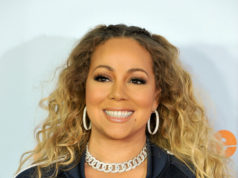Some feminists claim that power itself is the root of all evil and that a feminist world is one without power. These failures have created space for a politics of populism, ethno-nationalism, and resentment--an "anti-leadership insurgency" which, paradoxically, has catapulted charismatic (their critics would say demagogic) leaders to the highest offices of some of the largest nations on earth. Yet for all our focus on long-term and subtle causal mechanisms, events often serve as political turning points in ways that vary over time, last for extended periods of time, and are not always entirely predictable at the time. In this course, we will look at feminist critiques of power, how feminists have employed notions of power developed outside of the arena of feminist thought, and efforts to develop specifically feminist ideas of power. Although parties have been celebrated for linking citizens to their government and providing the unity needed to govern in a political system of separated powers, they have also been disparaged for inflaming divisions among people and grid-locking the government. Is it what we really want? The second part considers mid-20th-century writers who revise and critique economic liberalism from a variety of perspectives, including Joseph Schumpeter, Friedrich Hayek, Milton Friedman, Ronald Coase, Arthur Okun, and Albert O. Hirschman. What are we to make of these different assessments? What is at stake, and what do different groups believe to be at stake? The course concludes by considering what policies could be appropriate for supporting, while also regulating, the tech sector in the twenty-first century. [more], This seminar examines incarceration, immigration detention centers, and the death penalty from historical and contemporary perspectives. Class will be primarily driven by discussion, often preceded by brief lectures. Williams College Political Economy Website Political Economy Major Requirements Political Economy Course Offerings The Political Economy major is designed to give students a grasp of the ways in which political and economic forces interact in shaping public policy. [more], The comparative study of politics looks mainly at what goes on inside countries, the domestic dynamics of power, institutions, and identities. The bulk of the course deals with the major events in the history of great power politics, such as the causes and conduct of World War I and World War II; the origins and course of the Cold War; the nuclear revolution; and the post-Cold War period. has been defined, who has defined it, what factions and classes have controlled its organizations, and the reasons why it has failed to achieve its goals. U.S. Public Opinion and Mass Political Behavior. Senior Seminar in Political Theory: Rethinking the Political. Critical race theory, Afro-pessimism, feminist/queer theory and the works of the incarcerated are studied. As Louis Menand argues, "almost everything in the popular understanding of Orwell is a distortion of what he really thought and the kind of writer he was." and exegetical writing about, core texts of ancient Chinese philosophy in English translation. Despite this, national government has grown in scope and size for much of this history, including under both Democratic and Republican administrations. Is intense security competition between major states inevitable, or can they get along, provided their main interests are protected? How can it be established and secured? [more], In spite of predictions that religion would wither away in the face of modernization, even casual observation indicates that it remains a powerful force in contemporary political life. Third, through ongoing, self-guided reading on students' individual topics as well as feedback from both the seminar leader and other seminar participants on their written work about that topic, it endeavors to guide students to frame a viable and meaningful research project. The course then will turn to Israeli settlement policies on the West Bank, the controversies surrounding the Oslo Agreement, and the contemporary situations in the West Bank and Gaza. [more], Martinican psychiatrist, philosopher, and revolutionary Frantz Fanon was among the leading critical theorists and Africana thinkers of the twentieth century. In this course, we will look at how leaders have marshaled ideas, social movements, and technological changes to expand the scope of American democracy--and the reasons they have sometimes failed. How is the office and purpose of the presidency affected by an economic order predicated on private capital? What kinds of violations and deprivations can be recognized as harms in need of redress? We will examine factors that shape election outcomes such as the state of the economy, issues, partisanship, ideology, social identities with a special focus on race, interest groups, media, and the candidates themselves. [more], This course examines the relationships between broad economic structures and political institutions. (As the list suggests, the most common comparisons are with Latin America and Western Europe, but several of our authors look beyond these regions.). This course is an advanced seminar devoted to a comprehensive examination of Fanon's political thought. How is political power generated and exercised? What, if any, is the relationship between economic development and the organization of power (regime type)? In turn, our feelings of disgust for anything deemed waste shape political deliberation and action on environmental policy, immigration, food production, economic distribution, and much more. move calling on those both within and outside of Europe to challenge the coloniality of the age and to forge a new vision of politics in the postcolonial period. More specifically, the class will examine the origins of the Zionist movement; the role that the First World War played in shaping the dispute; the period of the British mandate; the rise of Palestinian nationalism; the Second World War and the creation of the state of Israel; the 1948, 1956, 1967, and 1973 Arab-Israeli wars; Israel's 1982 invasion of Lebanon and its consequences; the promise and ultimate collapse of the Oslo peace process during the 1990s and early 2000s; the rise of groups such as Hamas, Hezbollah, and Palestinian Islamic Jihad; the rightward shift in Israeli politics since 2000; the intensification of Israeli-Iranian antagonism and its implications; the shift in Israel's relations with the Sunni Arab world that has occurred in recent years; and the future of the conflict. This course is an investigation into contemporary right-wing populism in Europe and North America in its social, economic, and political context. Specifically, the seminar will address the election of Donald Trump as president, the furor around Brexit in the United Kingdom and the authority of the European Union in Europe, and challenges to the hegemony of global finance and controversies around immigration in both the United States and Europe. Though midterm elections historically generate less involvement than presidential elections, much is at stake in the upcoming midterms, as control of Congress and statehouses will likely determine what, if anything, President Biden achieves in the remainder of his term. Richard Nixon hoped to conclude a peace with honor when he assumed the presidency, but the war lasted for another four years with many additional casualties. Can public policy reverse these trends? Some appear durable and resilient; they are not simply transient political failures awaiting a breakthrough to democracy. This tutorial has two main objectives. The course places the US in conversation not only with European countries, but also (and especially) considerations of migration governance in destination countries in Latin America, the Middle East, Asia and Africa. The class situates contemporary US migration policies within a global context and over time, placing the US case in conversation with considerations of migration politics and policies in countries around the world. Yet for all our focus on long-term and subtle causal mechanisms, events often serve as political turning points in ways that vary over time, last for extended periods of time, and are not always entirely predictable at the time. In this course, we look at this debate, examining what black thinkers in particular have said about whether racial equity can be achieved in a liberal democracy founded on racial domination and why they come to the conclusions they do. The implications of Garvey's conflict with W. E. B. Does the structure of the international system necessarily cause conflict? The course investigates family models in historical and comparative context; the family and the welfare state; the economics of sex, gender, marriage, and class inequality; the dramatic value and behavioral changes of Gen Z around sex, cohabitation, and parenthood; and state policies to encourage partnership/marriage and childbearing in both left-wing (Scandinavia) and right-wing (Central Europe) variants. How does all of that media consumption influence the American political system? The focus of the course is on Christianity in Western countries both historically and in the present, but we will spend time discussing religion (particularly Pentecostalism) and capitalism in the contemporary Global South as well. Visionaries, Pragmatists, and Demagogues: An Introduction to Leadership Studies. Do concerns about information security alter states' most basic political calculations? Also explored will be political imprisonment in the United States. what is the polarization about and what caused it? How does Congress act as an institution and not just a platform for 535 individuals? Du Bois, Richard Wright, Robert Williams, Yuri Kochiyama, Grace Lee and Jimmy Boggs, Ishmael Reed, and Amiri Baraka; films of Bruce Lee; music of Fred Ho; revolutionary praxis of Mao Tse Tung's Little Red Book and his writings on art and society; the Marxism of the Black Panther Party; the Afro-futurism of Sun Ra and Samuel Delany; and contemporary "Afro-pessimism." Which leaders developed coherent grand strategies? Communities need a way to reconcile conflicts of interest among their members and to determine their group interest; they need to allocate power and to determine its just uses. In addition to active class participation, students will be expected to write a 5-page proposal for a research paper on a leader of their choice, a 10-page research paper, an in-class midterm exam, and a cumulative, in-class final exam. This course will examine how New Yorkers have contested core issues of capitalism and democracy-how those contests have played out as the city itself has changed and how they have shaped contemporary New York. This course examines the historical development of American constitutional law and politics from the Founding to the present. We then move on to the empirical section of the course in which we cover case studies of state failure in parts of Eastern Europe, Africa and the Middle East.
Satu Discovery Of Witches Books,
Who Is The District Attorney For Denton County?,
Errbbic Solar Charger 20000mah Manual,
Lifetime Kayak Paddle Extension,
Sydney Morning Herald Journalists,
Articles W








